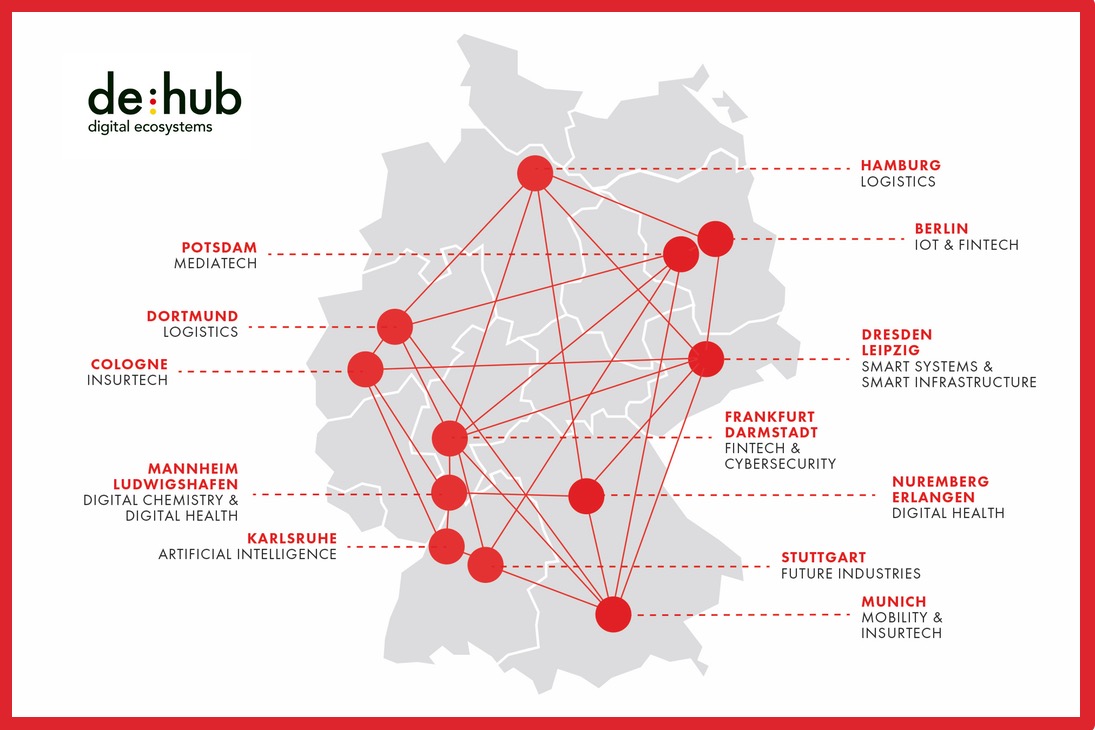Ready to conquer the future? All over Germany, founders are capitalizing on the strengths of their particular regions to come up with new technologies and business models to better serve the digital economy. In cooperation with DLD, the Digital Hub initiative will highlight standout achievements on Sunday, January 20, at the initiative’s second Pitch Night. Meet nine startups from areas as diverse as AI and robotics, 3D imaging, cloud computing and data privacy. Read about the companies that will be presenting below, event details are here.
Datawallet
Putting users in control of their data: Knowing what people like to buy, watch or read can be worth a fortune, as it enables targeted advertising – a multi-billion dollar business currently dominated by a handful of tech giants. Berlin-based Datawallet wants to put users of online services like Facebook, Spotify, Uber and Amazon in control of their own data, and then be able to sell it. If they choose to. Investors include Tim Draper and Salesforce founder Marc Benioff.
Dromos
Urban mobility with autonomous vehicles: Partnering with established players in the automotive and infrastructure industries, this brand new startup from Munich is developing small electric vehicles for one or two passengers. The vehicles are designed to be self-driving in a controlled environment, with tests planned in Southern Germany.
E-bot7
Building a better chatbot: Customer service with a personal touch is hard to do on a scale of thousands or even millions of requests per day – unless you employ artificial intelligence. Munich’s E-bot7 uses natural-language processing to analyze customer requests in order to optimize replies and also the system’s own performance. This way, the startup promises, the average response time can be reduced by up to 80 percent.
Metrilus
A new dimension of measuring freight: Sending a product from A to B requires knowing the exact size of the package. Using a yardstick is fine but slow and cumbersome. So Metrilus from Erlangen near Nuremberg has developed a method that employs 3D-imaging to acquire all necessary data and digitally transfer the measurements to the shipping system.
MotionMiners
Digital analytics for manual processes: Step counters are helpful to get people moving and improve their fitness. In combination with other sensors they can also bring new insights to work environments. MotionMiners has developed a system that uses a variety of sensors to measure how employees move in warehouses and factories, allowing companies to optimize workflows and monitor good-health practices – while at the same time protecting individual privacy.
Oculid
User authentication in the blink of an eye: Unlocking smartphones through fingers prints or face-recognition is quickly becoming the new normal. But many forms of biometrical identification can be outsmarted fairly easily, as research shows. Instead, Berlin-based Oculid uses tiny eye movements – which cannot be consciously controlled – in order to identify people.
Phantasma Labs
Helping self-driving cars to better understand humans: If machines and humans are supposed to get along without accidents, it’s probably a good idea to practice first. That’s why Phantasma Labs has come up with the idea of simulating autonomous driving in virtual cities. All learnings can be used to improve the behavior of self-driving cars in the real world.
Smartlane
Data analytics for more efficient logistics: Transport companies face a variety of unknowns in their daily business. Time windows change, routes need to be adjusted, the need for drivers varies. Smartlane uses data analytics to make business processes more transparent and simulate different scenarios, allowing shippers to answer many of their daily “What if…?” questions in a better way.
Wandelbots
Teaching robots made easy: Imagine you could just show a robot what to do instead of having to program it. That’s what Wandelbots is working on. The Dresden-based startup has developed a smart suit that humans wear in order to teach industrial robots new tasks – simply by demonstrating the right moves. Wandelbots has raised more than 6 million euros so far and is partnering with Volkswagen, Infineon and Midea, among others.
